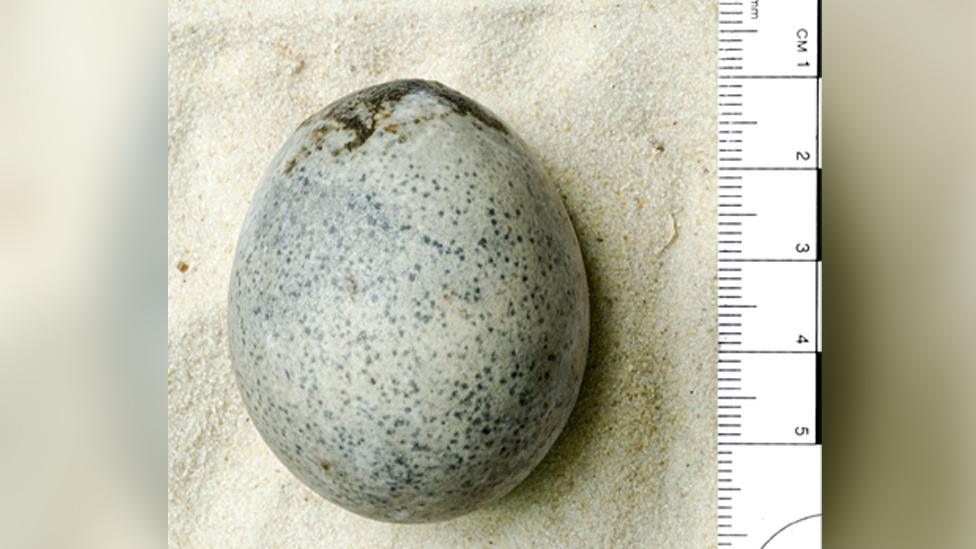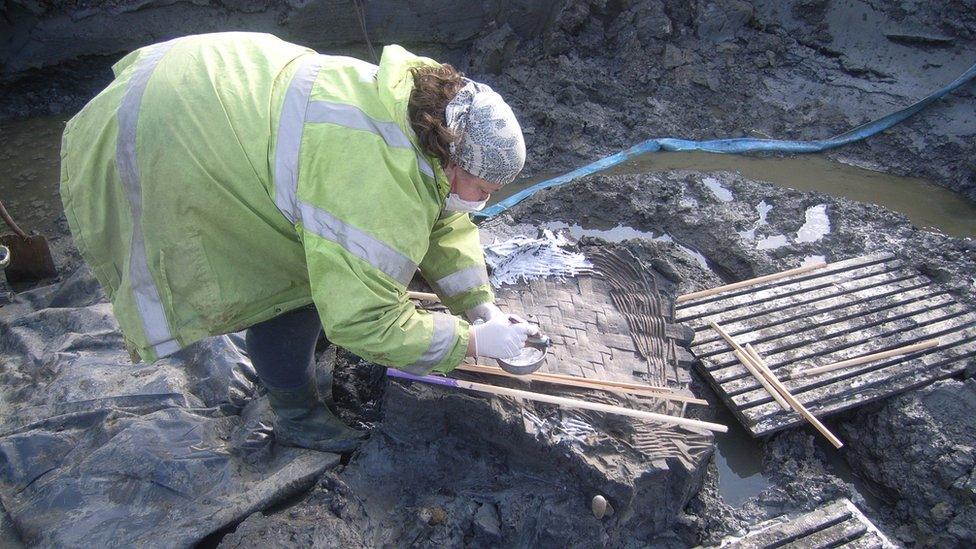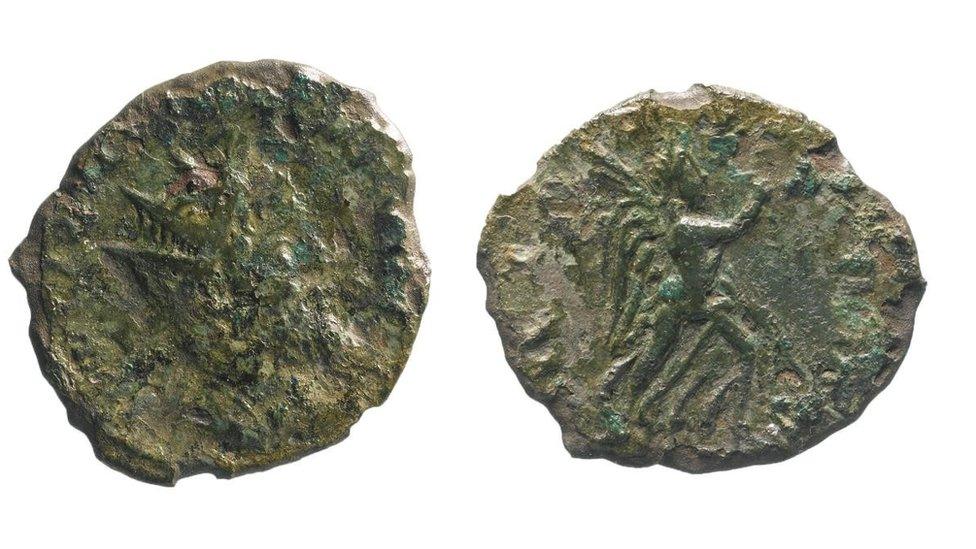Aylesbury Roman egg with contents a 'world first', say scientists
- Published

This egg was cast into a watery pit 1,700 years ago - possibly as part of a Roman funeral rite
The only intact chicken's egg found from Roman Britain is now thought to be the only one of its type in the world - after scientists found it still had liquid inside.
The egg, which is about 1,700 years old, was found during a dig in Aylesbury in Buckinghamshire.
Researchers said at the time it was a "genuinely unique discovery".
However, they admitted they were "blown away" recently to find it still contained the yolk and egg white.
A micro CT scan - that produces 3D images - revealed the contents of the egg, complete with the air sac.
A scan confirmed the Roman egg found in Aylesbury was complete
Edward Biddulph, senior project manager at Oxford Archaeology, which oversaw the excavation, said while finding the only intact egg from the period in Britain was "amazing... the fact that the egg still retains its original contents, however, is absolutely incredible".
He said: "We were absolutely blown away when we saw the contents in there, as we might have expected them to have leeched out."
The egg was found with others during a dig that took place between 2007 and 2016, ahead of a housing development at Berryfields, in Aylesbury.

Archaeologists needed to prevent the egg breaking up as they removed it during the dig
It was the only egg to survive intact, with others breaking during the excavation, releasing a "potent stench".
The findings from the site were made public in 2019, at which time Mr Biddulph said the extent and range of discoveries "was more than could be foreseen".
However, years on, he said the Roman egg was "still revealing its secrets".
Recent work has been carried out by conservator Dana Goodburn-Brown, who took the egg to the University of Kent to be scanned.
"It produced an amazing image that indicated that the egg, apart from being intact - which is incredible enough - also retained its liquid inside, presumably deriving from the yolk, albumen etc," said Mr Biddulph.

Remains of a basket found in the pit alongside the eggs has been recreated by basket-maker Owen Jones
The egg has also been taken to London's Natural History Museum, where Douglas Russell, senior curator of the museum's birds' eggs and nests collection, and his colleague Arianna Bernucci were consulted about how to conserve the egg and remove the contents without breaking it.
Mr Russell said: "There are older eggs with contents - for example, the [museum] has a series of mummified birds' eggs, probably excavated... from the catacombs of sacred animals at Denderah, Upper Egypt in 1898 which may be older.
"However, this is the oldest unintentionally preserved avian egg I have ever seen. That makes it fascinating.
"Going forward, it will be very exciting to see if we can use any of the modern imaging and analysis techniques available here at the museum to shed further light on exactly which species laid the eggs and its potential archaeological significance."
Mr Biddulph said: "As we found out when we visited the Natural History Museum, [it] appears to be the oldest known example in the world."
The archaeologist admitted that it was "a bit daunting walking around London with a 2,000-year-old egg".
"And it was a bit hairy on the Tube - although it was well protected - it's not like I was carrying it around in my pocket."
The now much-travelled egg is being housed at Discover Bucks Museum in Aylesbury while work continues to figure out how to extract the contents without breaking the shell.
"It's a bit like blowing an egg - but obviously a much finer process," Mr Biddulph said.
"There is huge potential for further scientific research and this is the next stage in the life of this remarkable egg."

Follow East of England news on Facebook, external, Instagram, external and X, external. Got a story? Email eastofenglandnews@bbc.co.uk , externalor WhatsApp 0800 169 1830
Related topics
- Published6 December 2019

- Published18 May 2019
